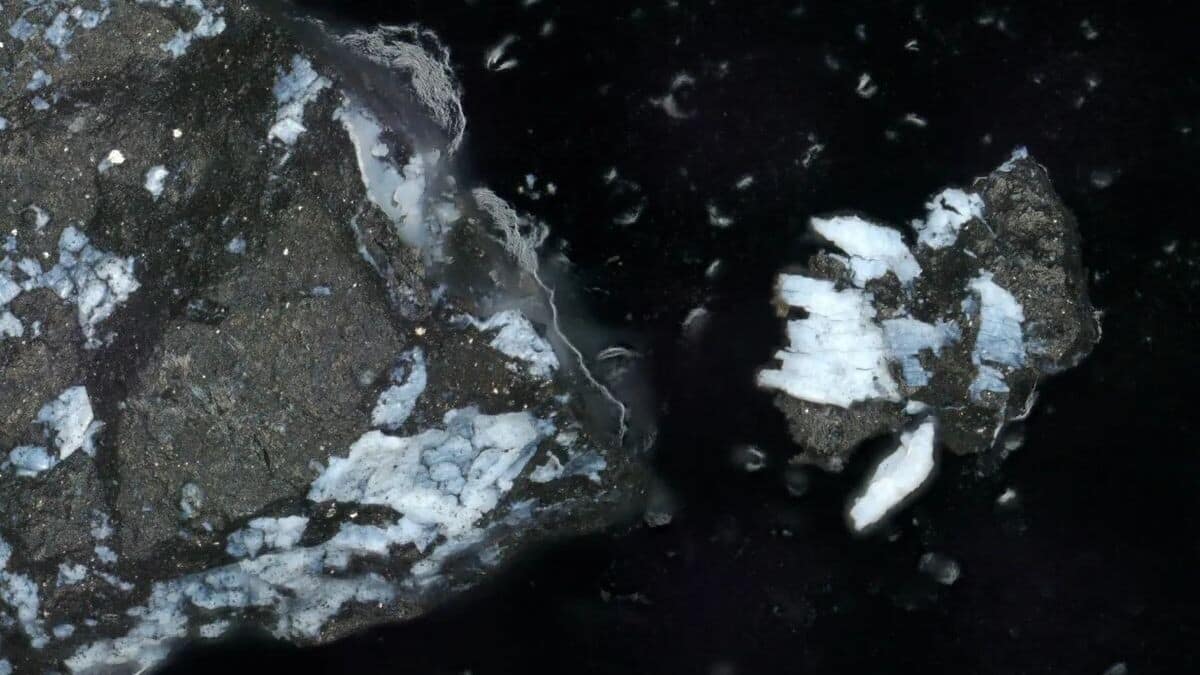
Surprising finding in asteroid Bennu's sample hints at oceanic origin
What's the story
An analysis of the asteroid Bennu sample, returned by OSIRIS-REx mission in September 2023, has revealed surprising findings. The sample contains magnesium-sodium phosphate, which "wasn't seen in the remote sensing data collected by the spacecraft at Bennu," said NASA. "Its presence in the sample hints that the asteroid could have splintered off from a long-gone, tiny, primitive ocean world." The Bennu sample, weighing 120gm, is currently the largest reservoir of unaltered asteroid material on Earth.
Geological insights
Sample collection and analysis reveals Bennu's geological past
The sample was collected from a site nicknamed Nightingale in Bennu's northern hemisphere using OSIRIS-REx's Touch-and-Go Sample Acquisition Mechanism (TAGSAM). Further analysis revealed that the prevailing component of the regolith sample is magnesium-bearing phyllosilicates, primarily serpentine and smectite. These types of rock are typically found at mid-ocean ridges on Earth, suggesting an aqueous environment in which they originated. This provides possible insights into Bennu's geological past.
Ancient traits
Bennu's surface preserves ancient solar system characteristics
Despite potential alterations by water over time, Bennu's surface still preserves some ancient characteristics believed to be present during the early days of our solar system. The asteroid is rich in carbon, nitrogen, and some organic compounds, all essential components for life as we know it on Earth. Per NASA, the magnesium-sodium phosphate "detected in the Bennu sample stands out for its purity and the size of its grains, unprecedented in any meteorite sample."
Geochemical clues
Discovery raises questions about Bennu's geochemical processes
The presence of magnesium-sodium phosphate in the Bennu sample raises questions about the geochemical processes that concentrated these elements. "OSIRIS-REx gave us exactly what we hoped: a large pristine asteroid sample rich in nitrogen and carbon from a formerly wet world," said Jason Dworkin, a co-author on the paper and the OSIRIS-REx project scientist at NASA. Despite its possible history of interaction with water, Bennu remains a chemically primitive asteroid, closely resembling the elemental proportions of the Sun.